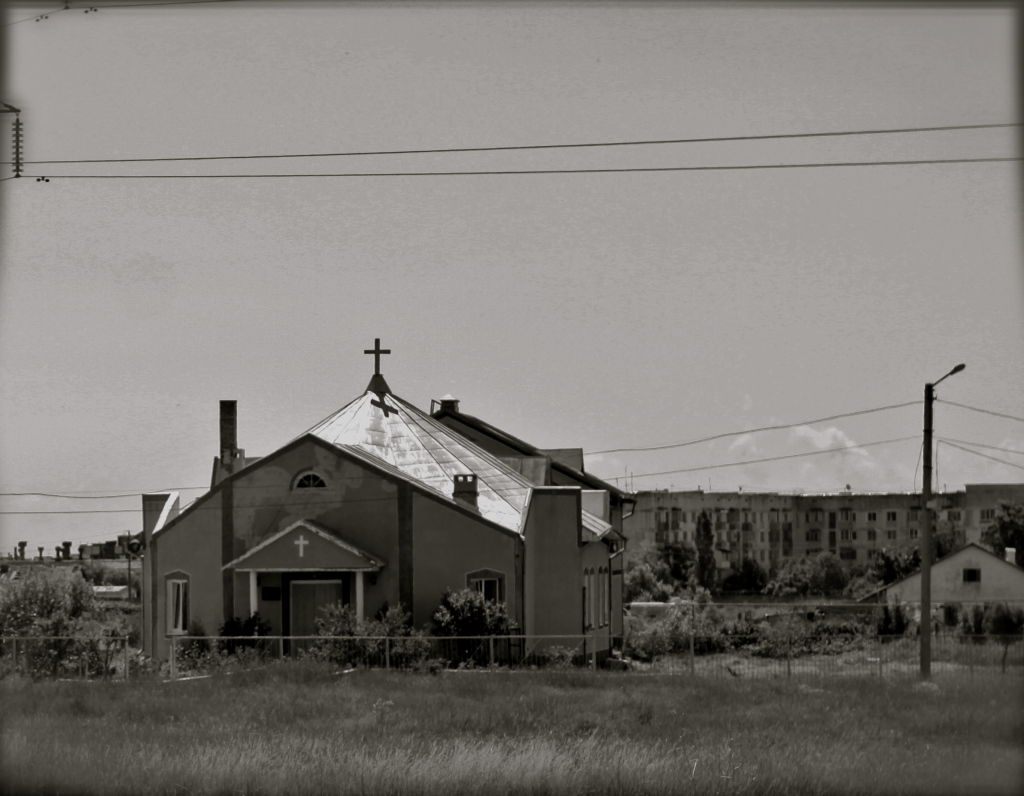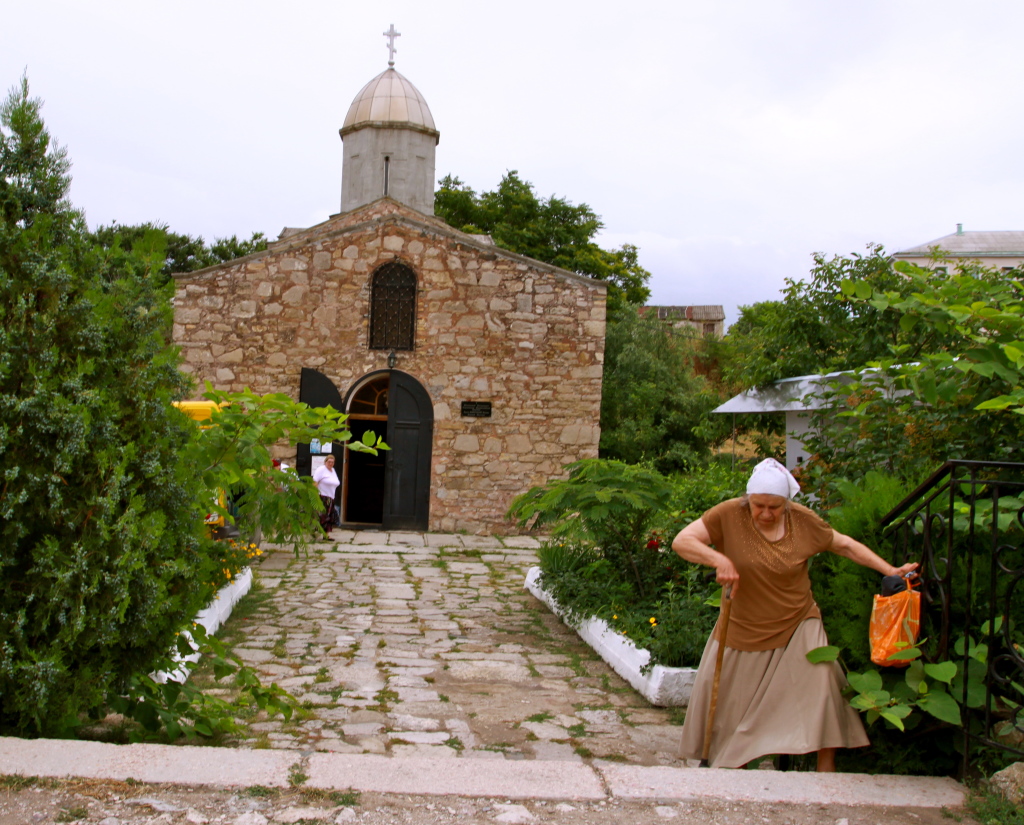CMF International News |
|
‘There is only one enemy and it is not Russia!’ Posted: 06 May 2015 06:50 AM PDT In March 2014 the Russian Federation annexed Crimea and longtime CMF missionary June Johnson and other members of her team were forced to evacuate the country. A year and eight days later, June returned to Crimea to get a look at the current situation and make decisions about the future. Here are portions of her fascinating account of life and ministry in a country that was turned upside down overnight.
I was nervous. This trip would be the first of its kind for me. I was going into Russia and didn’t know yet what that meant. Several truths fought back fear and kept me putting one foot in front of the other:
On March 9 I flew from Oregon to England, and on the night of March 13 I flew into Moscow and then on to Simferopol, Crimea. All of my worries about passport control and customs were for nothing as there were no problems anywhere along the way.
I set a crazy schedule for myself but I was driven to meet with every pastor I worked with and to have as many as those visits as possible happen on their home turf. After interviewing 22 pastors and seven Sunday school teachers, I had a steno pad full of notes. To crunch this all into a general summary is hard, but let me give it a try.
Church ministry
Satan has used politics as a divisive weapon within every church and it has brought out the “true colors” of many in the congregation, showing who was placing their hopes in the government and who was trusting in God. However, the unity among the pastors has stayed strong and the divisions within the congregations are starting to heal.
Our planned ministry outreaches to children and teens took place last summer with one exception due to health reasons. I was proud and pleased to hear that the majority of the pastors/youth leaders plan to hold outreaches this summer. It was exciting to hear was that three VBS programs are planned in new places and one new outreach to teens has started. My trip provided a way to get provisions into their hands for these upcoming events.
Not all is ‘ministry as usual,’ though. Due to fear, three VBS programs will not be held. Even during the Easter outreaches to children, two programs had immediate police follow up. Nothing bad happened and the situations ended well, but the unexpectedness of the threat threw a new scent of fear in the air. The freedom Crimea has experienced for the past 20-plus years is a thing of the past. The rules have definitely changed, but what exactly the new rules are is unknown.
A major struggle the local churches are facing is that, on paper, they do not exist; they have not yet been able to complete their registration with Russia. The reason? No one knows, but the reality is that without official registration, they can’t pay their utility bills, can’t publicly announce events (i.e. Easter programs, Vacation Bible School), they cannot give invitation letters for short term teams or missionaries to get a religious visa and the documents they have for the ownership of their church buildings are worthless. Obviously this is an issue that the local pastors are working to solve as quickly as possible, but progress has been painfully slow. This heavy factor of the unknown has etched weariness into the faces of my friends. But every pastor wanted me to communicate to you their greetings and that your continued support for their outreaches to children and teens is a practical encouragement and they are grateful. And they send a huge heartfelt “thank you” for your prayers.
Medical work
The church clinic I work most closely with closed last June, as is usual in the summer. However, unlike our usual schedule, they did not restart in the fall. A huge factor was the new government. With the church unregistered and the introduction of social medicine, our pastor felt it best not to reopen the clinic. Also, the shipment of supplies to Crimea is, for now, stopped due to sanctions. And sadly, in September, our pharmacist Natasha was diagnosed with cancer in her brain and lungs and died in November.
We had not expected to stop the ministry and God had blessed us with a lot of supplies. We did not want them rotting on the shelves when they could be helping others, so last fall, when the border was more porous, the staff worked hard to send many supplies onward to the other two clinics in Ukraine. During this visit, besides seeing a few patients, I worked to sort and send on what we could to other local ministries. While the clinic is closed, the ministry continues in a different way. At the age of 76, Dr. Ludmilla continues an active ministry doing medical phone consultations. The wound room remains functional and Tanya, the nurse I’ve trained in wound care, still sees patients within the church.
So what is it like?
On the surface, everything looks much the same but underneath everything is different. I was advised by many to not bring up the subject of politics, but the subject of politics was brought up by every person I talked with and usually within the first several minutes of every conversation.
In the many discussions I had (with both Christians and non-Christians), I heard the entire spectrum of feelings. I can introduce you to a couple (she is a patient of mine) who are completely satisfied with the change. And, I can introduce you to my next-door neighbor, who has lived in fear for her life for well over a year now. Interestingly, the excitement of many of those who were in favor of the new government has cooled. Yet, the quiet heroes are many: those Christians accepting the situation as from God and desiring to trust and obey God in it.
It is not difficult to figure out that Crimea peninsula has turned into one large military outpost. In all my traveling, I saw for myself that every abandoned post is now active. I was told that the highest wages in Crimea go to the military personal and police that are being brought in from Russia.
Those folks receiving pensions are doing well, despite the inflation. However, the hardest hit are the working class. The economy has slowed to a sluggish crawl. For example, Crimea’s economy was built around goods and services for tourism. Hardly any tourists came last year and there is little reason to think it will be any different this year. In Feodosia, the oil port was the next biggest employer. But because they sent their oil products north into Ukraine, they shut down. Most businesses/services that had ties with Ukraine had to shut their doors. In other words, because employment has crumbled, the working class can’t find work. There is also a large influx of refugees. These are people who are pro-Russia but fled the fighting areas in Ukraine. Since they have next to nothing, they are willing to work for lower wages just to be able to put bread on the table.
So what does this mean for ministry?
Personally, my six weeks in Crimea was a gift. To be able to hug friends that I had thought I may never see again was precious to me. As I got to spend a little time with them I understood that, for each, life had turned a sharp corner and question marks of How? When? What now? hung over them too.
So I don’t know yet. I have lived in the uncomfortable place of “I don’t know” for well over a year now. As I move into the second half of the trip — a two-month research visit into Ukraine — I covet your prayers for travel safety, wisdom and obedience. |


